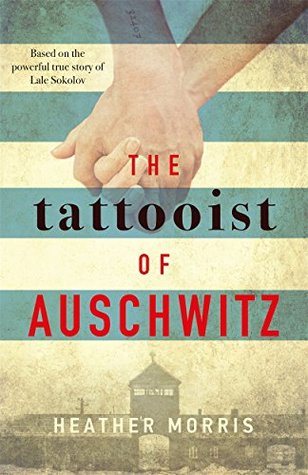Post by Hippiejo on May 16, 2021 12:54:31 GMT
The Tattooist of Auschwitz by Heather Morris
The Tattooist of Auschwitz is based on the true story of Lale and Gita Sokolov, two Slovakian Jews who survived Auschwitz and eventually made their home in Australia. In that terrible place, Lale was given the job of tattooing the prisoners marked for survival - literally scratching numbers into his fellow victims' arms in indelible ink to create what would become one of the most potent symbols of the Holocaust. Lale used the infinitesimal freedom of movement that this position awarded him to exchange jewels and money taken from murdered Jews for food to keep others alive. If he had been caught, he would have been killed; many owed him their survival.
There have been many books about the Holocaust - and there will be many more. What makes this one so memorable is Lale Sokolov's incredible zest for life. He understood exactly what was in store for him and his fellow prisoners, and he was determined to survive - not just to survive but to leave the camp with his dignity and integrity intact, to live his life to the full. Terrible though this story is, it is also a story of hope and of courage. It is also - almost unbelievably - a love story. Waiting in line to be tattooed, terrified and shaking, was a young girl. For Lale - a dandy, a jack-the-lad, a bit of a chancer - it was love at first sight, and he determined not only to survive himself but to ensure that Gita did, too. His story - their story - will make you weep, but you will also find it uplifting. It shows the very best of humanity in the very worst of circumstances.
Like many survivors, Lale and Gita told few people their story after the war. They eventually made their way to Australia, where they raised a son and had a successful life. But when Gita died, Lale felt he could no longer carry the burden of their past alone. He chose to tell his story.

I've read a number of books now about the horrors of Auschwitz and all of them have left me emotionally drained and so bewildered that humans can treat other humans that way. This book was different, in that it felt far more personal. The terrible things that went on at Auschwitz were gently hinted at rather than described in any detail.
This was a love story that flourished in the most barren of environments, told from the perspective of a man who though compromised, doing what he needed to do to survive, tried to do it with compassion and kindness. It saved his life and the lives of others.
The additional short chapters following Heather's visit to Auschwitz and Lale's hometown were a lovely way to end the book. Loved it!
The Tattooist of Auschwitz is based on the true story of Lale and Gita Sokolov, two Slovakian Jews who survived Auschwitz and eventually made their home in Australia. In that terrible place, Lale was given the job of tattooing the prisoners marked for survival - literally scratching numbers into his fellow victims' arms in indelible ink to create what would become one of the most potent symbols of the Holocaust. Lale used the infinitesimal freedom of movement that this position awarded him to exchange jewels and money taken from murdered Jews for food to keep others alive. If he had been caught, he would have been killed; many owed him their survival.
There have been many books about the Holocaust - and there will be many more. What makes this one so memorable is Lale Sokolov's incredible zest for life. He understood exactly what was in store for him and his fellow prisoners, and he was determined to survive - not just to survive but to leave the camp with his dignity and integrity intact, to live his life to the full. Terrible though this story is, it is also a story of hope and of courage. It is also - almost unbelievably - a love story. Waiting in line to be tattooed, terrified and shaking, was a young girl. For Lale - a dandy, a jack-the-lad, a bit of a chancer - it was love at first sight, and he determined not only to survive himself but to ensure that Gita did, too. His story - their story - will make you weep, but you will also find it uplifting. It shows the very best of humanity in the very worst of circumstances.
Like many survivors, Lale and Gita told few people their story after the war. They eventually made their way to Australia, where they raised a son and had a successful life. But when Gita died, Lale felt he could no longer carry the burden of their past alone. He chose to tell his story.

I've read a number of books now about the horrors of Auschwitz and all of them have left me emotionally drained and so bewildered that humans can treat other humans that way. This book was different, in that it felt far more personal. The terrible things that went on at Auschwitz were gently hinted at rather than described in any detail.
This was a love story that flourished in the most barren of environments, told from the perspective of a man who though compromised, doing what he needed to do to survive, tried to do it with compassion and kindness. It saved his life and the lives of others.
The additional short chapters following Heather's visit to Auschwitz and Lale's hometown were a lovely way to end the book. Loved it!


